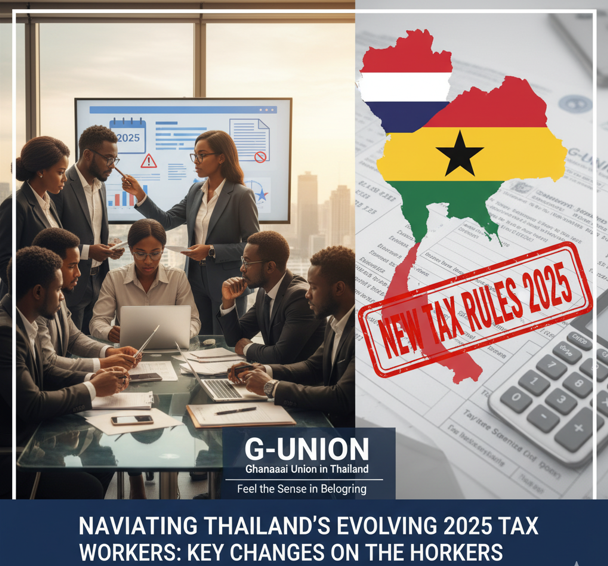
G-Union
News
Oct 16, 2025

BANGKOK – Foreign workers in Thailand are advised to prepare for significant adjustments to the country's tax regulations, with new rules set to take effect from January 1, 2025. These upcoming changes, particularly concerning income earned abroad, aim to modernize Thailand's tax framework and align it more closely with international standards.
The new directives will impact how foreign workers, including those classified as tax residents, declare and pay taxes on their global income, necessitating a careful review of financial planning strategies.
Under the previous system, foreign workers who were considered tax residents in Thailand (typically those residing in the country for 180 days or more in a tax year) were generally taxed only on income sourced from Thailand or foreign income remitted into Thailand within the same tax year it was earned.
However, the new interpretation, effective from 2025, mandates that all foreign-sourced income brought into Thailand by tax residents, regardless of when it was earned, will be subject to personal income tax. This marks a crucial shift from the "remittance basis" applied in previous years.
This change is particularly significant for expatriates and foreign professionals who maintain income streams or investments outside Thailand. Previously, many were able to bring in foreign-earned income from prior tax years without incurring Thai tax liability. With the 2025 rules, any such funds transferred into Thailand will now be taxable.
This move is part of a broader effort by the Thai Revenue Department to enhance tax collection and ensure fairness across all income earners, as detailed by legal and financial analysts cited in reputable publications like the Bangkok Post.
To prepare for these impending changes, foreign workers and their employers should seek updated tax advice from qualified professionals specializing in Thai taxation. Understanding the implications for various income types, including salaries, dividends, interest, and capital gains earned overseas, will be critical. It may also necessitate adjustments to banking practices, investment strategies, and personal financial planning to ensure compliance and optimize tax efficiency under the new regime.
The Thai Revenue Department's official announcements and guidelines will be the definitive source for these new tax rules. Foreign workers are strongly encouraged to monitor updates from rd.go.th and consult with tax experts to gain a clear understanding of how these 2025 regulations will specifically affect their individual financial circumstances. Proactive planning will be key to navigating Thailand's evolving tax landscape successfully.
Source: Bangkok Post